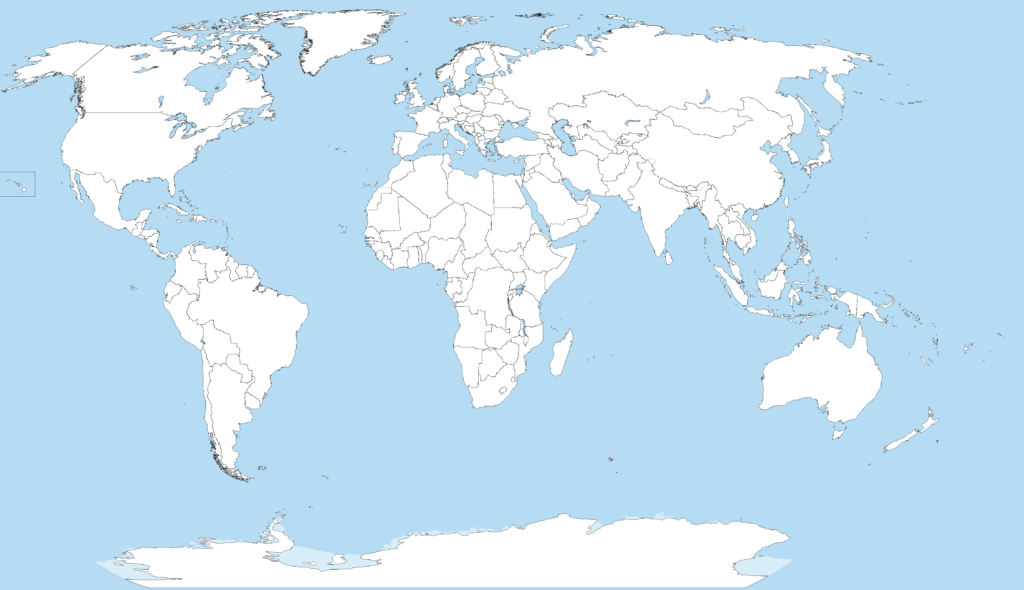Some countries deny convicted felons access to their country. When planning to visit or immigrate to another country, it is often necessary to apply for a visa from the destination country. A visa is an official document, typically placed in a person’s passport, that grants them permission to enter a specific sovereign nation. The visa application process varies from country to country, and each country has its own set of regulations and criteria.

It is important to note that different countries have their own definitions and classifications of what constitutes a felony. This can significantly impact the visa application process. For instance, an individual from Australia seeking to travel to China may have committed an act that is considered a regular offense in Australia. However, if China classifies that same act as a felony, the Chinese government may deny the visitor a visa based on their criminal record because they are against convicted felons coming into their country.
Therefore, it is crucial for travelers to be aware of the specific regulations and criteria set by the destination country when applying for a visa, as these can vary significantly and influence the outcome of the application.
Countries that deny entry to convicted felons who are visitors
Argentina
Australia
Canada
China
Cuba
India
Iran
Israel
Japan
Kenya
Macau
New Zealand
South Africa
Taiwan
United Kingdom
United States
Australia
In Australia, individuals with a criminal record who intend to visit the country as tourists are required to apply for a visa. Certain offenses can potentially impact the eligibility to obtain a visa, but the final decision rests with the reviewing official. If the offense was committed a significant time ago and the person has maintained a good record since then, it is possible for a visa to be granted. However, if the crime resulted in a prison sentence of one year or more, it is unlikely that immigration to Australia will be permitted.
Canada
Canada has the authority to deny entry to individuals with a criminal history. This includes those who have committed felonies, particularly if the offense resulted in a 10-year prison sentence. However, individuals who have been officially pardoned or deemed rehabilitated according to Canadian law may still be eligible for entry. In the case of individuals seeking permanent immigration, there is increased scrutiny for those with a history of crimes such as theft, assault, manslaughter, dangerous driving, DUI, or specific drug-related offenses. Such potential immigrants must wait for a period of five years after completing their sentence and must demonstrate to Canadian authorities that they have undergone reformation.
Japan
Japan permits visa-free visits of up to 90 days. However, for longer stays, a visa is necessary. Individuals who have been incarcerated for more than a year or have a conviction related to drugs are likely to have their visa applications denied. Japan strictly adheres to a zero-tolerance policy regarding immigrants with drug-related convictions.
RUSSIA
To visit Russia, it is necessary to complete a visa application and disclose any criminal convictions on the form. Depending on the severity of the convictions, they can potentially disqualify an individual from obtaining a visa.
For visits to Japan of 90 days or less, a visa is not required. However, for long-term visas, a criminal background check is conducted. If Japanese authorities discover a recent drug-related offense, especially one that led to imprisonment, the visa application may be denied.
UNITED KINGDOM
American passport holders visiting the United Kingdom do not need to obtain a visa. However, individuals holding passports from countries that require an advance visa for entry into the UK will undergo a background check during the application process. If the reviewing officials have concerns that the person may pose a threat or intends to engage in harmful activities while in the UK, the visa application may be denied. Furthermore, the immigration officer at the UK border has the authority to refuse entry.
UNITED STATES
While the United States is known for having a significant immigrant population and attracting individuals from various countries, it does have specific entry requirements. Individuals who have been convicted of offenses that would be considered aggravated felonies in the United States, typically defined as crimes that carry a sentence of one year or longer in their home country, are unlikely to be granted entry or permanent residency.






